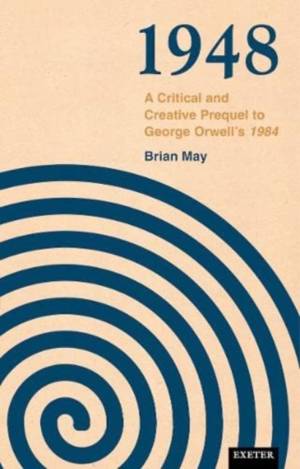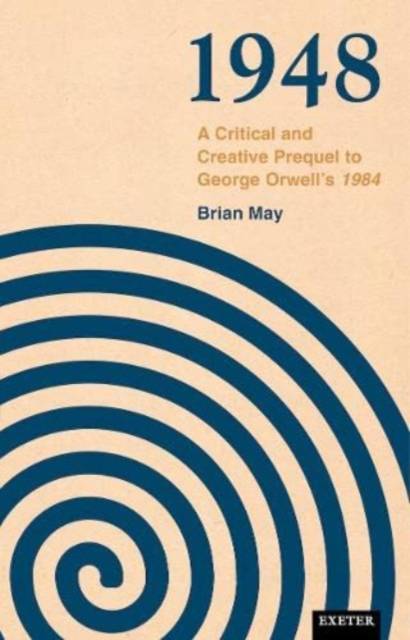
- Afhalen na 1 uur in een winkel met voorraad
- Gratis thuislevering in België vanaf € 30
- Ruim aanbod met 7 miljoen producten
- Afhalen na 1 uur in een winkel met voorraad
- Gratis thuislevering in België vanaf € 30
- Ruim aanbod met 7 miljoen producten
Zoeken
€ 120,95
+ 241 punten
Omschrijving
Described as the most widely read and influential serious writer of the twentieth century, George Orwell remains relevant in our own era of contested media. He continues to attract a large readership. This book is about Orwell's post-war cultural moment c. 1948. Taking his Diaries of the time as inspiration, together with his famous final novel, 1984 (published 1949), and treating them as contiguous texts, Brian May explores the gaps, equivocations, and contradictions in Orwell's message and asks what Orwell would have written next. But 1948 is more than a work of literary criticism: rather, it balances critical discussion with creative intervention, being one-half literary-critical commentary, and one-half fictional departure - a novella titled "From the Archives of Oceania," which quotes, parodies and pastiches Orwell's Diaries, offering a possible prequel. Together these elements offer a resource for the reader to interrogate anew such difficult issues such as Orwell's sexism and anti-Semitism; to explore the tensions between various intertwining strands of thought that cast Orwell as both realist and idealist, Puritan and individualist; and to better understand Orwell's curious affection for the natural world. 1948 will appeal to all readers and critics of Orwell, but also to students of dystopian fiction, "revisionary" fiction and "reception study," which highlights the audience's contribution to an artwork's meaning.
Specificaties
Betrokkenen
- Auteur(s):
- Uitgeverij:
Inhoud
- Aantal bladzijden:
- 196
- Taal:
- Engels
Eigenschappen
- Productcode (EAN):
- 9781784274245
- Verschijningsdatum:
- 28/11/2023
- Uitvoering:
- Hardcover
- Formaat:
- Genaaid
- Afmetingen:
- 140 mm x 216 mm
- Gewicht:
- 1133 g

Alleen bij Standaard Boekhandel
+ 241 punten op je klantenkaart van Standaard Boekhandel
Beoordelingen
We publiceren alleen reviews die voldoen aan de voorwaarden voor reviews. Bekijk onze voorwaarden voor reviews.











